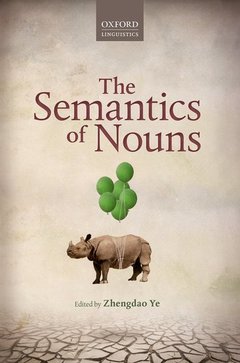Description
The Semantics of Nouns
Coordinator: Ye Zhengdao
Language: English
Subjects for The Semantics of Nouns:
Publication date: 04-2017
332 p. · 18x24.1 cm · Hardback
332 p. · 18x24.1 cm · Hardback
Description
/li>Biography
/li>
This volume brings together the latest research on the semantics of nouns in both familiar and less well-documented languages, including English, Mandarin Chinese, Russian, the Papuan language Koromu, the Dravidian language Solega, and Pitjantjatjara/Yankunytjatjara from Australia. Chapters offer systematic and detailed analyses of scores of individual nouns across a range of conceptual domains, including 'people', 'places', and 'living things', with each analysis fully grounded in a unified methodological framework. They not only cover central theoretical issues specific to the analysis of the domain in question, but also empirically investigate the different types of meaning relations that hold between nouns, such as meronymy, hyponymy, taxonomy, and antonymy. The collection of studies show how in-depth meaning analysis anchored in a cross-linguistic and cross-domain perspective can lead to unexpected insights into the common and particular ways in which speakers of different languages conceptualize, categorize, and order the world around them. This unique volume brings together a new generation of semanticists from across the globe, and will be of interest to researchers in linguistics, psychology, anthropology, biology, and philosophy.
Zhengdao Ye is a Lecturer in Linguistics and Translation Studies at the Australian National University in Canberra. She received her undergraduate degree in Chinese Linguistics and Literature from the East China Normal University in Shanghai, and her Master's and Ph.D. degrees in Linguistics from the ANU. Her research interests encompass semantics, pragmatics, language and cognition, translation studies, ethnopsychology, and Chinese linguistics. She is the co-editor, with Cliff Goddard, of 'Happiness' and 'Pain' Across Languages and Cultures (John Benjamins 2016).
© 2024 LAVOISIER S.A.S.
These books may interest you

Count and Mass Across Languages 81.47 €



